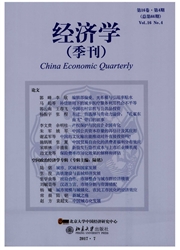

 中文摘要:
中文摘要:
本文计算了从1993年到2001年间中国29个省份的生产率增长数据的曼奎斯特指数,然后通过面板数据计量经济模型研究了不同教育水平对技术效率的影响。我们的结果显示,大学教育对效率改善和技术进步都具有有利影响,而中小学教育对于效率改善具有不利影响;而且,大学教育对效率改善的有利影响是通过具有大学教育水平的劳动者向更有效率的非国有企业再分配实现的。
 英文摘要:
英文摘要:
We calculate DEA Malmquist indices of productivity growth for the twenty-nine continental Chinese provinces for the period of 1993 to 2001. Using a panel econometric model of productivity growth, we investigate the different effects that primary education, secondary education and university education exert on total factor productivity growth. We show that university education has a favourable effect both on efficiency growth and technical progress, while primary education and secondary education have an unfavourable one on efficiency growth. Moreover, the favorable effect of university education on efficiency change is through the reallocation of university-educated workers into more efficient non-state sector.
 同期刊论文项目
同期刊论文项目
 同项目期刊论文
同项目期刊论文
 期刊信息
期刊信息
